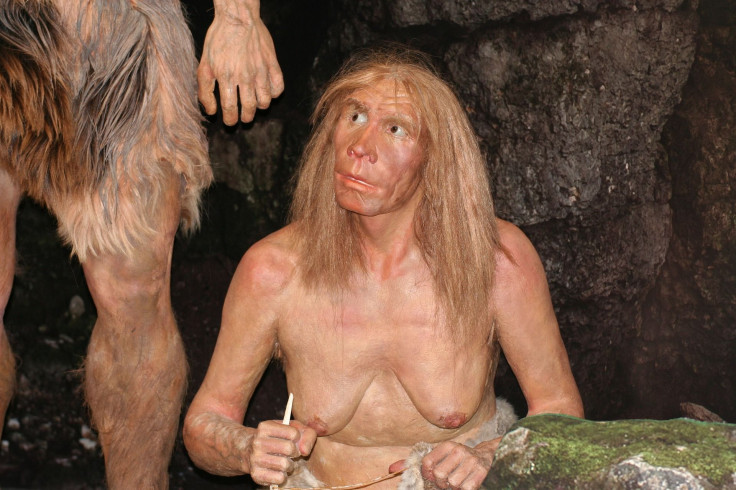If You're A Woman, Having Neanderthal Gene Could Be Great. Here's Why
KEY POINTS
- Progesterone hormone is crucial for menstrual cycle, pregnancy, libido, etc.
- Progesterone receptor is inherited by 1 in 3 European women
- Women with the inherited gene have increased fertility and fewer pregnancy issues
Why some women face a higher risk during childbirth and why some go into labor for longer durations compared to others still remain a mystery. And while some women have no problem conceiving quickly, others might be struggling to get pregnant for so many years. The clue might lie in a gene inherited from the Neanderthals, according to a recent study.
A progesterone receptor inherited from the Neanderthals is associated with increased fertility, fewer miscarriages, and fewer bleeding during pregnancy reported the Researchers at the Max Plank Institute for Evolutionary Anthropology in Germany and Karolinska Institutet in Sweden.
Neanderthals are an extinct species of archaic human beings from Eurasia who lived there about 40,000 years ago. These archaic humans emerged at least 200,000 years ago during the Pleistocene Epoch. Compared to modern humans, they had a more robust build and possessed proportionally shorter limbs.
Progesterone, a steroid sex hormone secreted by the ovaries, adrenal glands, and the placenta, is involved in the menstrual cycle, pregnancy, libido, and embryogenesis. The progesterone receptor is encoded by the gene ‘PGR’ located on chromosome 11 and is expressed in the endometrium. Progesterone levels are elevated throughout pregnancy and play a vital role in keeping the fetus viable until delivery.
Women with low levels of progesterone during pregnancy might suffer from miscarriages. There is also a possibility of bleeding during the first trimester.
“We show that two Neandertal haplotypes carrying the PGR gene entered the modern human population and that present-day carriers of the Neandertal haplotypes express higher levels of the receptor. In a cohort of present-day Britons, these carriers have more siblings, fewer miscarriages, and less bleeding during early pregnancy suggesting that the Neandertal progesterone receptor alleles promote fertility. This may explain their high frequency in modern human populations,” said the researchers in their paper published in Molecular Biology and Evolution.
The Study:
The researchers analyzed data from the U.K. biobank using the Gene ATLAS tool. Out of the 450,000 participants, 244,000 were women.
Key findings:
- One in three women in Europe possessed the progesterone receptor.
- 29% carry one copy of the Neanderthal receptor and 3% carry two copies.
- Women with the gene variant had fewer miscarriages, gave birth to more children, and became pregnant more frequently experienced fewer bleeding compared to others.
- The progesterone receptor protected women against bleeding and miscarriages since they provided increased sensitivity to progesterone.

© Copyright IBTimes 2024. All rights reserved.






















